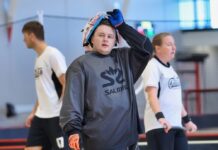Historian Gareth Watkins highlights November dates that highlight the significant strides that New Zealand’s rainbow communities have made.
27 November 1974
On this day, representatives from five Gay Liberation groups made submissions to a parliamentary select committee. The Committee was considering MP Venn Young’s members bill which set out to decriminalise homosexual acts between consenting adults aged 21 and over. This was the first major parliamentary attempt at homosexual law reform in New Zealand. Media reported that Rae Dellaca from Gay Liberation (Victoria University of Wellington) told the Committee that Gay Liberation’s aim was to broadly end the legal and total social repression of homosexuals. Dellaca said that society inflicted a feeling of guilt, shame and nastiness, and homosexuals could feel an incredible sense of worthlessness. M. McAllister from Auckland University highlighted examples of people being fired from their jobs and being evicted from flats because of their sexuality. While H. Sydow from Christchurch said that repealing the current laws would be a step in the right direction, but would not break down all the self-loathing on its own. Ultimately, Young’s Bill was defeated, with only 29 MPs voting in favour, 34 against and a massive 24 abstentions.
November 1980
One of the best-selling musicians of all time, Elton John, performed concerts in Auckland and Wellington during the month. It was John’s third visit to New Zealand, having first toured here in 1971. John first publicly talked about identifying as bisexual in a Rolling Stone interview in 1976. He told the magazine “Nobody’s had the balls to ask me about it before. I would have said something all along if someone had asked me.” In 1992, after two of his friends – Freddie Mercury and Ryan White – died from AIDS-related illnesses, he established the Elton John AIDS Foundation. The non-profit organisation has raised over US $600 million to support HIV related projects in over fifty countries. In 2012, on the twentieth anniversary of White’s death, John wrote him a letter, “I was by your side when you died at Riley Hospital. You’ve been with me every day since. You inspired me to change my life and carry on your work. Because of you, I’m still in the struggle against AIDS, 20 years later. I pledge to not rest until we achieve the compassion for which you so bravely and beautifully fought.”
10 November 2003
Television New Zealand hosted a symposium in Auckland to discuss the future of local Queer television. Johnny Givins, executive producer of the award-winning television series Queer Nation (1996-2004), told the gathering, “That a queer television symposium is happening at all is amazing to me.” At the time Queer Nation was relegated to a late-night broadcast time because TVNZ programmers felt that it was “not suitable” for an earlier slot. Despite this, Givins said “Make no mistake – Queer Nation has made a difference. The stories we tell, the people we interview, and the places we go to have changed people’s perceptions of themselves and their place in the world.” Givins also said “It is clear that the days of exclusion are numbered. The attitude of acceptance of diversity, truth to ourselves is overpowering, as Justice Kirby so eloquently stated a year ago at the opening of the Gay Games in Sydney, ‘We are on the way to enlightenment and there will be no u-turns.’”
November 2021
The 2019/20 Household Economic Survey conducted by Stats NZ was released. For the first time the social survey contained “inclusive questions on gender and sexual identity.” Over 31,000 people aged 18 and over, took part from across the country. The survey suggested that 4.2% of adults in Aotearoa would self-identify as LGBT+. Social and population insights general manager Jason Attewell told media, “This new information can help inform policy making and support further research on the different experiences and outcomes for the LGBT+ population.” Attewell also pointed to the inclusion of new identity questions in the upcoming nationwide 2023 Census, “We will be able to say with more accuracy how many people make up the broader LGBTI+ community in Aotearoa and provide more detailed insights.”






















